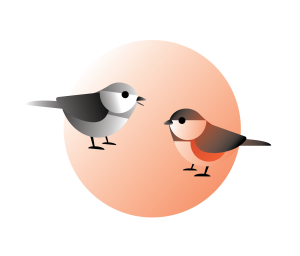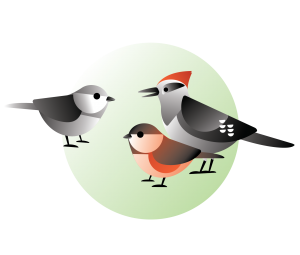Intro to Discrimination
Our province of BC is full of diverse people. Having this diversity in race, ethnicity, culture, gender and more improves our lives in many ways. We can learn about cultural practices and traditions that are different from our own, which we might not have come across.
While diversity is often celebrated, discrimination still exists in our province. Some examples of ethnic discrimination are reflected in the 2020 In Plain Sight report, which found 84% of surveyed Indigenous Peoples reported facing discrimination when receiving health care. Additionally, anti-Asian hate crimes increased across BC during the pandemic (a 717% increase in Vancouver alone). Gender discrimination has also increased in BC in recent years, where police reported 263 hate crimes targeting sexual orientation in 2019, up 41% from a year earlier.
There may be times when someone may disrespect, harass or abuse others who may be different from them. In this case, it’s important that we recognize that something wrong is happening and take a stand for ourselves and others, especially when they aren’t able to do so for themselves.
What is discrimination?
Discrimination is the unfair or harmful treatment of people and groups based on characteristics such as race, ethnicity, culture, religion, gender, ability, age, appearance, sexual orientation, gender identity or class. It can be scary just being a part of a group that is often discriminated against, such as Indigenous Peoples, racial minorities or individuals who identify as Two-Spirit and/or members of the gender and sexually diverse community.
What can discriminatory harassment look like?
Discrimination can happen anywhere and some places may have special laws or rules in place to help protect people against harassment.
A lot of different things count as harassment, such as:
- Microaggressions
- Comments about your appearance, speech or actions
- Someone treating you differently because of your race, ethnicity, culture, religion, gender, age, ability or sexual orientation or more
- Someone being aggressive or even physically violent because they are stereotyping you
- Someone consistently following you because they are wary of you based on stereotypes
What are microaggressions?

Discriminatory actions can happen even when people don’t realize it. A microaggression is an intentional or unintentional offensive act that targets a person because they are part of a racial, ethnic, cultural, gender, religious, ability, age or sexually diverse group.
There are many ways microaggressions can happen. This can look like making fun of someone’s ethnic food or language, mispronouncing someone’s name, ignoring someone’s preferred pronouns, deadnaming (using a transgender or non-binary person’s former name without their consent), etc. Microaggressions can also occur without you realizing or recognizing that it is happening. If you ever felt like you were dismissed or that achievements have been downplayed because you are part of a certain community, it’s likely that a microaggression happened.
I’ve noticed microaggressions, what can I do about it?
Over time, microaggressions create a loss of self-esteem and can cause us to doubt our abilities and how we fit into the world around us. We often dismiss or overlook microaggressions, trying not to rock the boat or seeming “too sensitive.” By taking small steps to intervene, we can help disarm microaggressions and call attention to harmful behaviour.
When you notice a microaggression, try speaking up to the commenter, stating what you heard and why it can be seen as harmful. By challenging them and speaking up, you help give a voice to those whose voices might not be heard. Other things you can do to challenge microaggressions are to pronounce people’s names properly, not make assumptions about people’s identities, respect their pronouns and explore your own biases. These microinterventions help create a safe and positive space for us all. For more information on how to navigate microaggressions, visit this discussion kit on how to respond to racism.
How can I report discrimination?
If there is an immediate concern for your safety or the safety of someone else, call 911 immediately. If English is not your first language, you can use various translation services to help you report.
You can always report an act of discrimination after the fact using the following resources:
- Use the erase Report It tool to anonymously send a message to your school
- Talk with an adult about what happened – try to provide as many details as you can
- Resilience BC has an email and toll-free number to report a hate crime or incident
- Call the non-emergency number for your local police department
- If you are an Indigenous person and you want to report something that happened in a healthcare setting, use the Safespace Network tool.
How can I support someone after they have been a victim of discrimination?

Follow up with them and ask them how you can help. It’s important to listen to what they have to say without judgement and to be understanding if they say they don’t want to talk about it. Let that person know you support them with what they need and tell them you think that the discrimination they’ve experienced is wrong.
You can also help them report what happened through one of the resources below.
Supports available to victims of discrimination are:
- The erase Report It tool for students
- The BC Human Rights Tribunal
- Resilience BC Anti-Racism Network
- Phone and online chat resources
Reading this article is a step forward in understanding how you can help yourself or others who have been a victim of discrimination. Our communities should be safe places where everyone has equal opportunities to learn, grow, and achieve their full potential and where diversity is celebrated.
Discrimination, support, diversity, race, ethnicity, culture, gender, religion, community, resources, microaggressions, discriminatory, stereotypes, In Plain Sight report, The BC Human Rights Tribunal, Resilience BC Anti-Racism Network, faces of racism, safe, Indigenous Peoples, racial minorities, Two-Spirit, gender and sexually diverse communities
Find out more about Foundry.